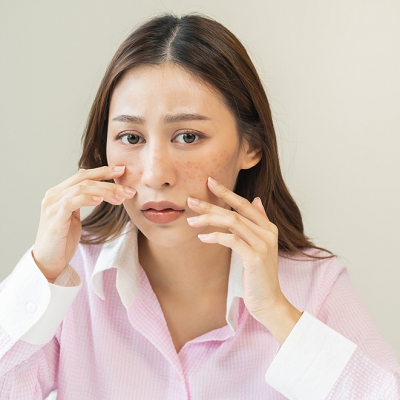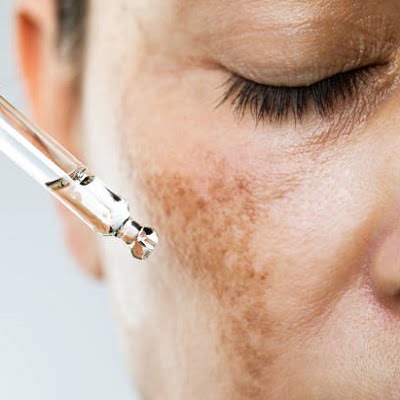
Melasma is a common skin disease that appears as brown or grey spots on the face. Moreover, it may have different causes, such as hormone changes, sunburn, or genes. However, all types of melasma are hard to treat. Furthermore, this skin issue can happen to anyone. However, women and people with darker skin are more likely to have it.
Therefore, you need to know about the different kinds of melasma. You also need to know Which Type of melasma is most difficult to treat. Furthermore, melasma can be less noticeable if you take the proper steps. Additionally, the right treatment will make your skin brighter, brighter, and more attractive.
Understand Melasma on the Skin:
You need to know the different kinds of melasma and how they look and behave to choose the best treatment. Moreover, mixed-type melasma, another name for dermal melasma, has a color that goes deeper into the dermal layer of the skin. Epidermal melasma mainly affects the epidermis, the top layer of skin. However, dermal melasma, on the other hand, has color deposits that go deeper into the dermis. Because of this, skin melasma is often less responsive to standard treatments. Additionally, it may need a more all-around approach to be effectively managed.
Which Type of Melasma Is Most Difficult to Treat?
Understanding Which Type of Melasma Is Most Difficult to Treat is essential. Therefore, dermal melasma is especially hard to treat compared to other types of melasma. Moreover, it is challenging due to the following problems:
Depth of Pigmentation: The pigmentation in dermal melasma goes deep into the skin, which makes it harder for coloring creams and chemical peels to reach. Because of this, these methods may not get to the color layers below as well as they should.
Resistance to Treatment: Traditional treatments, such as external medicines and surface surgeries, often do not work as well for melasma. Because the color is more profound, it is harder to target and requires more aggressive treatment methods for good results.
Risk of Side Effects: Laser therapy or deep chemical peels are two aggressive treatments for melasma with a higher risk of side effects like discoloration or scars after the treatment. It can be challenging for patients and healthcare workers to find a balance between the need for successful treatment and the risk of side effects.
Chronic: Dermal melasma is usually a long-term disease that goes away and comes back over time. If you get treatment that works, color may come back over time. It means you must keep up with upkeep and management plans.
Different Ways to Treat Melasma On the Skin:
Even though dermal melasma is hard to deal with, however, there are a few ways to treat it that may make the colored sores look better:
Combination Therapy: Using multiple types of treatment, like skin creams, laser therapy, and pills. However, they work better together than just one type of therapy.
Laser and Energy-Based Devices: Laser treatments go after pigment deep in the skin. Moreover, fractional or Pico lasers can break down layers of pigment in the dermis. These methods give energy to the dermis, make collagen, and help the skin restore itself.
Chemical Peels: Chemical peels that are medium to deep can get into the deeper layers of skin. Therefore, it helps lighten spots and make the skin feel better overall.
Maintenance Therapy: Using sunblock, whitening creams, and regular treatments can help keep the results of more intense treatments and stop them from returning.
Final Thoughts:
Treating dermal melasma is problematic because it has deeper coloring. Therefore, it does not respond well to standard treatments. However, people with dermal melasma can improve their color and general skin look by using an expert’s recommended approach. Moreover, it may include a variety of treatment methods and ongoing upkeep strategies. However, talking to a dermatologist or other skin care expert is essential. Therefore, to make a treatment plan unique to your needs and worries related to dermal melasma, consult with SKN Cosmetics Islamabad.









